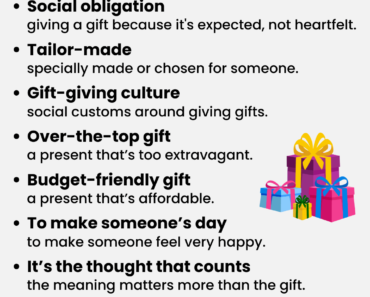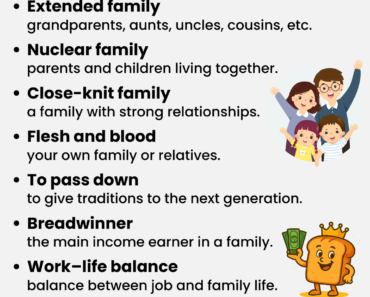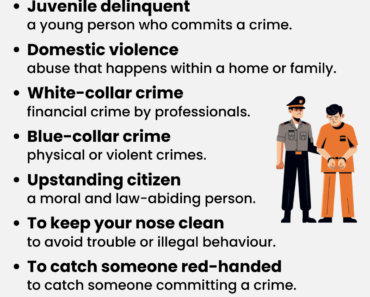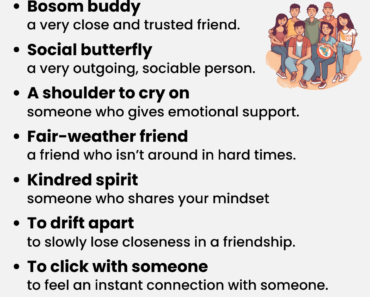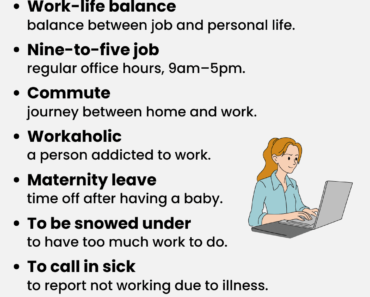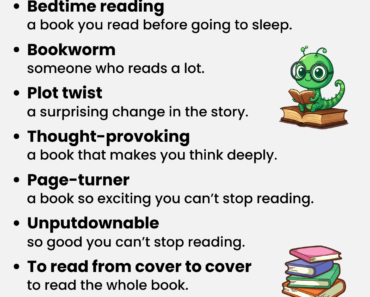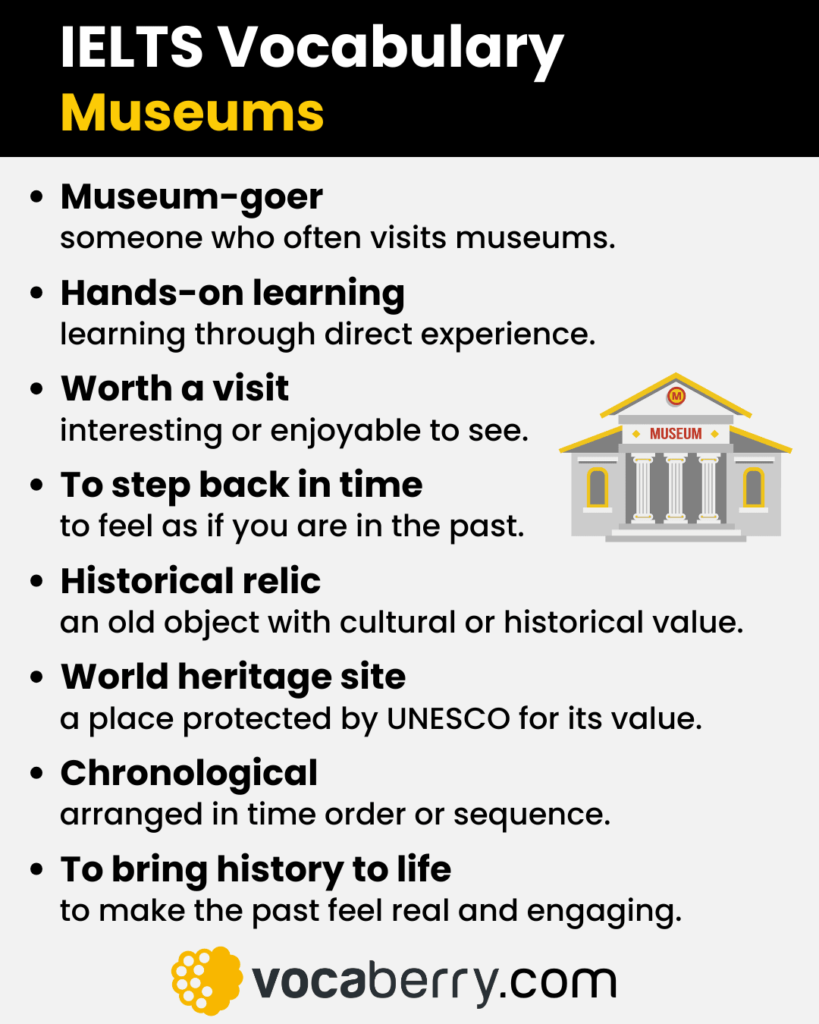
Museums are another popular topic in the IELTS Speaking test. Examiners may ask you about the types of museums you like, how often you visit them, or the importance of museums in preserving history and culture. In this guide, you’ll learn useful IELTS vocabulary for museums with clear definitions, followed by IELTS Speaking Part 1, Part 2, and Part 3 questions with sample answers.
IELTS Vocabulary for Museums
Here is some useful IELTS vocabulary for talking about museums with clear definitions. These words and phrases will help you give better answers in the IELTS Speaking test.
- Museum – a building where historical, scientific, or artistic objects are displayed.
- Cultural heritage – traditions and artifacts passed down through generations.
- Historical monument – a building or statue from the past with cultural value.
- World heritage site – a place protected by UNESCO for its importance.
- Archaeologist – a scientist who studies human history through artifacts.
- Art enthusiast – someone passionate about art and culture.
- Museum-goer – someone who often visits museums
- Curator – a person who manages or organizes a museum’s collection.
- Docent – a trained guide who leads tours, often a volunteer.
- Archaeological site – a place where ancient remains are found.
- Ancient civilization – an old society from thousands of years ago.
- Art gallery – a place where artworks are shown to the public.
- Exhibit – an item displayed in a museum or gallery.
- Display – the act of showing something to the public.
- Art museum – a museum that focuses on visual arts.
- Science museum – a museum that explains scientific principles.
- Open-air museum – an outdoor museum showing old buildings or ways of life.
- Natural history museum – a museum that focuses on animals, plants, and geology.
- Wax museum – a museum displaying wax figures of famous people.
- History museum – a museum focused on historical events and artifacts.
- Artifact – an object made by humans, often of historical interest.
- Historical relic – an object from the past that has cultural importance.
- Sculpture – a three-dimensional artwork made from stone, wood, or metal.
- Cultural preservation – protecting heritage for the future.
- Public funding – government money used to support museums.
- Interactive exhibit – a display visitors can touch or explore.
- Permanent collection – exhibits that remain in a museum all the time.
- Temporary exhibition – a short-term display of objects.
- Cultural appreciation – respecting and valuing other cultures.
- Educational value – the learning benefit something provides.
- To conserve heritage – to protect historical objects or traditions.
- Visitor experience – how people feel when visiting a museum.
- Admission fee – the money paid to enter a museum.
- Audio guide – a recorded explanation available for visitors.
- Guided tour – a visit led by an expert who explains the exhibits.
- To go on display – to be shown to the public.
- To document history – to record and display past events.
- To attract tourists – to draw visitors to a museum or city.
- To promote tourism – to encourage visitors to travel to a place.
- To be fascinated by history – to have a strong interest in the past.
- Hidden gem – a lesser-known but impressive museum.
- Treasure trove – a place full of valuable items.
- Chronological – arranged in time order.
- Worth a visit – enjoyable or interesting to see.
- Well-preserved – kept in very good condition over time.
- Eye-opening experience – something that teaches you new things.
- Hands-on learning – learning through direct experience.
- Time capsule – something that captures a moment in history.
- Cultural hub – a place that connects people through art and culture.
- Preservation project – an effort to protect heritage sites.
- To step back in time – to feel like you are in the past.
- To bring history to life – to make the past feel real and engaging.
- To gain cultural insights – to understand different traditions or societies better.
- To broaden one’s horizons – to expand knowledge and awareness.
- Living history museum – a museum that recreates the past.
- Virtual museum tour – exploring a museum online.
- Educational outreach – programs that teach the public.
- Archival material – old documents kept for research.
- Cultural institution – an organization promoting art and history.
- Thought-provoking exhibit – a display that makes you think deeply.
- Well-curated collection – a carefully arranged museum display.
IELTS Speaking: Museums Questions & Answers
In this section, you’ll find IELTS Speaking Part 1, Part 2, and Part 3 questions on museums with sample answers. These examples show how the museum-related vocabulary can be used in your responses during the test.
IELTS Speaking Part 1 – Museums
Do you like visiting museums?
Yes, I really enjoy visiting museums because they let me step back in time and explore different cultures. I love interactive exhibits where I can learn through hands-on experiences, and it’s always an eye-opening experience that helps me gain cultural insights.
How often do you go to museums?
I try to visit a museum or art gallery every few months, especially when there’s a temporary exhibition. I always check if it’s something new or worth a visit, and I enjoy seeing well-curated collections that tell a story.
What kind of museums do you like?
I’m most interested in history museums and science museums. I find artifacts and historical relics fascinating because they really bring history to life. I also enjoy museums that focus on hands-on learning, where you can experiment and explore.
Have you ever been to a famous museum?
Yes, I visited a world heritage site that had an incredible permanent collection of sculptures and paintings. The exhibits were displayed in chronological order, which made it easier to follow history. It was such a well-preserved place and definitely worth a visit.
What do you usually do when you visit a museum?
I usually take a guided tour or use an audio guide to learn more about the exhibits. Then I like to explore freely, especially areas with interactive exhibits or thought-provoking displays. Sometimes, I just sit and appreciate the cultural heritage around me.
IELTS Speaking Part 2 – Museums Cue Card
Describe a museum you have visited.
You should say:
- Where it is
- What kind of museum it is
- What you saw there
- And explain why you liked it
Sample Answer:
One of the most fascinating museums I’ve ever visited is the National History Museum in my city, which is one of the most popular cultural institutions in my country. It’s a world heritage site, known for its well-curated collections that beautifully showcase our cultural heritage and ancient civilizations.
When I arrived, I joined a guided tour led by a very knowledgeable docent, who explained how the museum was arranged in chronological order. The moment I stepped inside, it truly felt like I had stepped back in time. There were incredible artifacts and historical relics, from pottery and jewelry to old manuscripts and weapons discovered at archaeological sites. Each item was well-preserved, allowing visitors to see every tiny detail.
One section that really caught my attention was the interactive exhibits area, where visitors could enjoy hands-on learning experiences. For instance, there was a virtual museum tour that recreated an ancient civilization using 3D technology, which helped me bring history to life in a modern and engaging way. I also loved the living history museum section, where actors wore traditional costumes and re-enacted daily life from the past. It was such a unique and eye-opening experience.
Another highlight was the temporary exhibition on traditional art. It was a thought-provoking exhibit that combined sculptures, paintings, and even sound installations to explore how art has evolved over centuries. The curator did an amazing job of creating a cultural hub where visitors could gain cultural insights and appreciate how public funding helps preserve these treasures for future generations.
What impressed me most was how the museum managed to balance education and entertainment. It wasn’t just about staring at old objects; it offered an educational experience that truly broadened my horizons. I left feeling inspired by the cultural appreciation the museum promoted and thankful for the preservation projects that keep our history alive. Overall, it was definitely worth a visit and remains one of the most memorable experiences I’ve ever had as a museum-goer.
IELTS Speaking Part 3 – Museums Discussion
IELTS Speaking Part 3 questions about museums often ask you to compare traditional and modern museums, discuss their educational and cultural importance, and give opinions on how technology and funding influence the museum experience.
Why do people visit museums?
People visit museums to learn about the past and gain cultural insights through artifacts, historical relics, and interactive exhibits. Many enjoy hands-on learning that makes history more vivid and personal. For others, it’s an educational experience that fosters cultural appreciation and helps them broaden their horizons. Some are art enthusiasts who love visiting art galleries, while others are casual museum-goers seeking inspiration. Overall, museums serve as cultural institutions that allow visitors to step back in time and connect deeply with heritage.
How can museums stay relevant in the digital age?
To remain relevant, museums should blend traditional displays with innovation. Virtual museum tours, interactive screens, and audio guides make learning more accessible and dynamic. Digital tools help institutions bring history to life for global audiences, offering immersive and eye-opening experiences. At the same time, keeping well-curated collections and authentic artifacts ensures the emotional impact remains. By investing in cultural preservation and new technologies, museums can stay engaging while still honoring their historical purpose.
What role do museums play in education?
Museums act as living classrooms that provide hands-on learning and educational outreach opportunities. They let students explore archival material, historical monuments, and artifacts up close, making lessons tangible. Visiting a science museum or natural history museum helps learners understand complex ideas through interactive exhibits. These experiences also promote cultural appreciation and help students broaden their horizons by seeing how ancient civilizations shaped the modern world. Overall, museums make education both memorable and inspiring.
How do museums contribute to tourism?
Museums play a major role in promoting tourism and building a nation’s image. Renowned world heritage sites and national museums attract visitors from around the globe, while smaller hidden gems and open-air museums appeal to niche travelers. Their temporary exhibitions, preservation projects, and well-preserved collections offer travelers authentic cultural experiences. Beyond boosting the economy, museums encourage cultural appreciation and make destinations worth a visit for both education and enjoyment.
More IELTS Vocabulary Topics
If you found this lesson useful, explore other IELTS Speaking topics to expand your vocabulary and practice with sample answers:
- IELTS Vocabulary: Accommodation
- IELTS Vocabulary: Advertisement
- IELTS Vocabulary: Animals
- IELTS Vocabulary: Art
- IELTS Vocabulary: Artificial Intelligence
- IELTS Vocabulary: Books
- IELTS Vocabulary: Childhood
- IELTS Vocabulary: Crime and Punishment
- IELTS Vocabulary: Culture and Traditions
- IELTS Vocabulary: Daily Routine
- IELTS Vocabulary: Education
- IELTS Vocabulary: Environment
- IELTS Vocabulary: Family
- IELTS Vocabulary: Fashion and Clothes
- IELTS Vocabulary: Films
- IELTS Vocabulary: Food & Diet
- IELTS Vocabulary: Friends
- IELTS Vocabulary: Gifts
- IELTS Vocabulary: Health
- IELTS Vocabulary: Hobbies
- IELTS Vocabulary: Hometown
- IELTS Vocabulary: Money
- IELTS Vocabulary: Music
- IELTS Vocabulary: Plants
- IELTS Vocabulary: Shopping
- IELTS Vocabulary: Social Media
- IELTS Vocabulary: Sports
- IELTS Vocabulary: Technology
- IELTS Vocabulary: Transport
- IELTS Vocabulary: Travel
- IELTS Vocabulary: Weather
- IELTS Vocabulary: Work & Jobs

